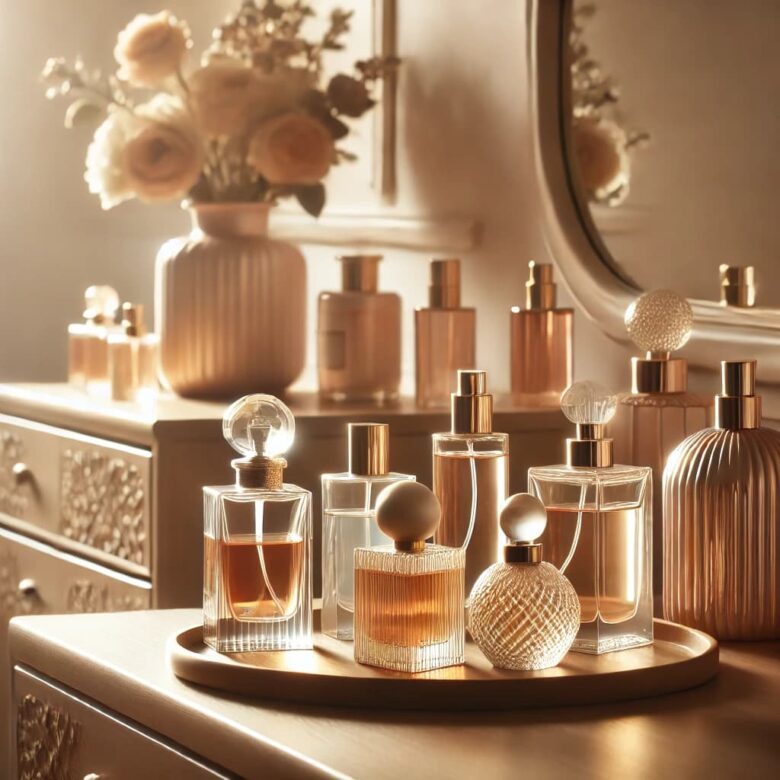Perfumes are delicate creations that deserve proper care to ensure their longevity and scent quality. Incorrect storage can cause fragrances to degrade, leading to a loss of their signature aroma and complexity. To help you preserve your favorite scents, we have compiled a comprehensive guide on how to store your perfumes correctly.
Why Proper Storage Matters for Perfumes
Perfumes are composed of volatile compounds that are sensitive to environmental factors such as light, temperature, and humidity. Improper storage can result in oxidation and degradation of these compounds, altering the scent profile and diminishing the fragrance’s overall quality. Protecting your perfumes from these elements is crucial to maintaining their integrity over time.
Key Factors to Consider for Perfume Storage
1. Keep Perfumes Away from Direct Sunlight
Exposure to sunlight is one of the primary causes of perfume degradation. Ultraviolet (UV) rays break down the chemical bonds in the fragrance compounds, leading to a change in scent and color. To protect your perfumes:
- Store them in a dark, cool place such as a drawer or cabinet.
- Consider using opaque or dark-colored bottles if decanting your fragrances.
- Avoid placing perfumes on windowsills or areas with strong sunlight exposure.
2. Maintain a Stable Temperature
Temperature fluctuations can negatively impact the chemical composition of your perfumes. High temperatures accelerate evaporation and oxidation, while extreme cold can alter the fragrance structure. Follow these guidelines:
- Store perfumes at a consistent temperature between 15°C and 20°C (59°F to 68°F).
- Avoid keeping them in the bathroom, where temperature and humidity levels can fluctuate.
- Consider using a dedicated storage box or organizer to provide additional insulation.
3. Avoid Humidity and Moisture
Humidity and moisture can damage both the scent and the packaging of your perfumes. Perfume bottles stored in damp environments are at risk of corrosion and mold. To minimize exposure to humidity:
- Store perfumes in a dry area, away from bathrooms and kitchens.
- Use silica gel packets or dehumidifiers to reduce moisture levels in storage spaces.
- Ensure the bottle caps are tightly secured to prevent air and moisture from entering.
4. Store Perfumes Upright
Perfume bottles should always be stored upright to prevent leakage and minimize exposure to air. Horizontal storage can cause the liquid to come into contact with the stopper or spray mechanism, leading to potential contamination or evaporation. Ensure your perfumes are:
- Positioned on a flat, stable surface.
- Organized in a way that prevents them from tipping over.
5. Limit Air Exposure
Air exposure accelerates oxidation, which can alter the fragrance’s composition and cause it to lose its original scent. To reduce air exposure:
- Always close the bottle tightly after use.
- Avoid frequent decanting unless necessary.
- Use smaller bottles if you don’t plan to finish a large one quickly, as less air will be trapped inside.
6. Use Original Packaging or Protective Boxes
The original packaging is designed to protect the perfume from light and temperature changes. If you prefer not to display your perfume bottles, keeping them in their original boxes can be a practical solution. Alternatively:
- Invest in a quality storage case or organizer.
- Use lined storage boxes to provide additional protection from environmental elements.
Best Practices for Long-Term Perfume Storage
1. Rotate Your Collection
If you own multiple perfumes, rotating your collection ensures that all fragrances are used regularly. This prevents older bottles from sitting unused for extended periods and helps maintain their freshness. Consider:
- Keeping track of purchase dates and prioritizing older bottles.
- Storing seasonal fragrances separately for easy access.
2. Avoid Touching the Spray Mechanism
The spray mechanism can become contaminated if handled frequently. Bacteria and oils from your hands can transfer to the nozzle, potentially affecting the scent. To prevent contamination:
- Handle the bottle carefully and avoid touching the spray nozzle.
- Clean the nozzle occasionally with a soft cloth or cotton swab dipped in rubbing alcohol.
3. Monitor for Changes in Scent and Appearance
Over time, even properly stored perfumes may experience slight changes. However, significant alterations in scent or appearance indicate that the fragrance may no longer be suitable for use. Watch for:
- Changes in color, such as darkening or cloudiness.
- Unpleasant or sour odors that deviate from the original scent.
- Separation of layers within the liquid.
Common Mistakes to Avoid
- Storing Perfumes in the Bathroom: The high humidity and temperature fluctuations in bathrooms can cause perfumes to degrade quickly.
- Displaying Perfumes on Open Shelves: While aesthetically pleasing, open displays expose perfumes to light and temperature changes.
- Frequent Decanting: Repeatedly transferring perfumes to smaller bottles can introduce air and contaminants.
- Ignoring Expiry Dates: Although perfumes don’t have a strict expiration date, using them beyond their prime can result in diminished scent quality.
Frequently Asked Questions About Perfume Storage
1. Can I store perfumes in the refrigerator?
While refrigeration can prolong the shelf life of certain fragrances, it is not necessary for most perfumes. If you choose to refrigerate your perfumes:
- Use a dedicated mini-fridge to avoid exposure to food odors.
- Ensure the temperature is set within the recommended range (15°C to 20°C).
2. How long do perfumes typically last?
The lifespan of a perfume varies depending on its composition and storage conditions. On average, perfumes can last 3 to 5 years if stored properly. Look for signs of degradation, such as changes in scent or appearance, to determine if a perfume is still suitable for use.
3. Should I decant perfumes for travel?
Decanting perfumes into smaller bottles for travel is convenient but should be done with care. Use clean, airtight travel bottles and avoid exposing the liquid to excessive air. Ensure the decanted perfume is used within a short time to maintain its quality.
Proper perfume storage is essential to preserving the integrity and quality of your favorite scents. By protecting your perfumes from light, heat, humidity, and air exposure, you can ensure they remain as captivating as the day you first opened them. Follow these detailed storage tips to enjoy your fragrances for years to come.






Leave a Reply